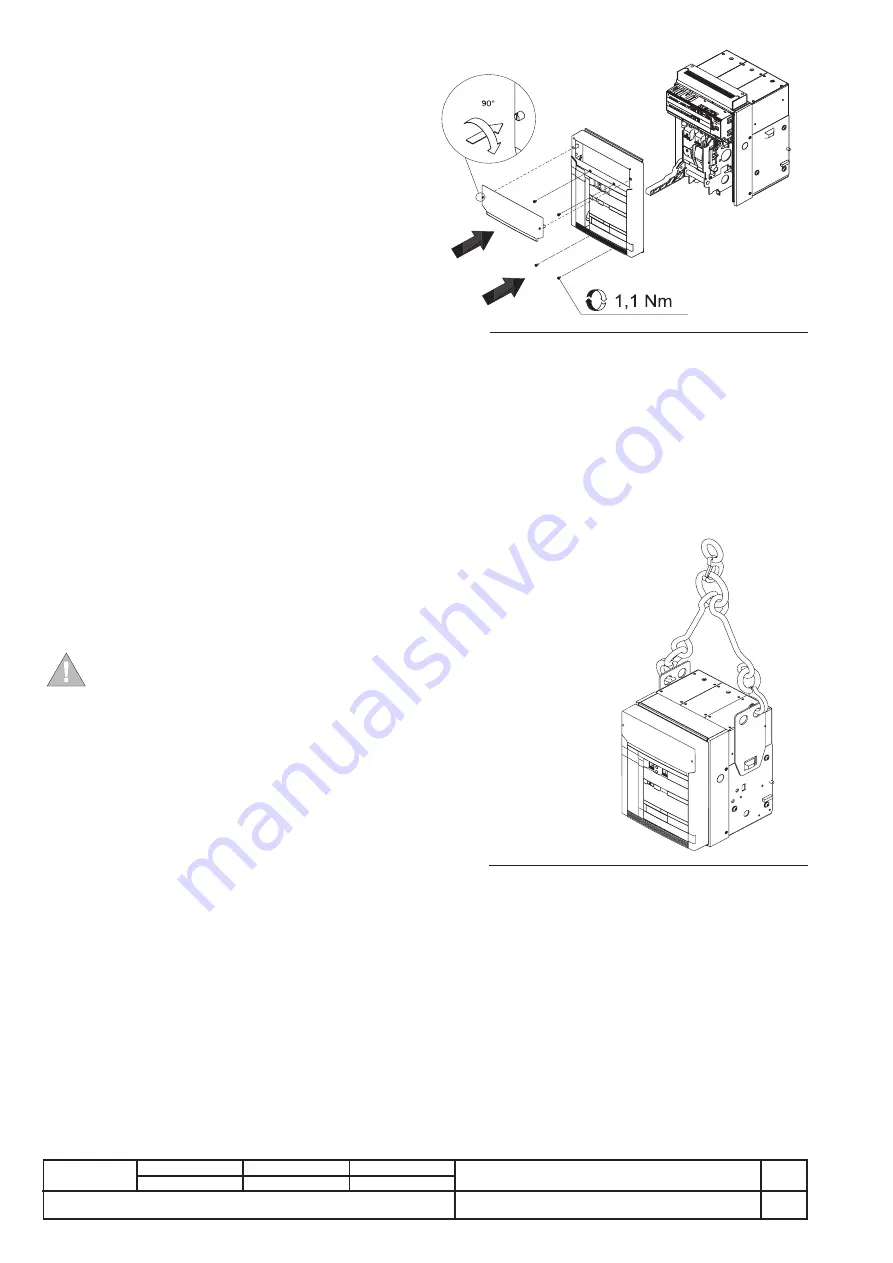
B2342
Emax VF
22/66
Doc. no.
Model
Apparatus
Scale
Page No
1SDH000909R0001
8.3.9. Maintenance operations; final checks
- Refit all parts and always reconnect the auxiliary supply.
- Refit the cap as indicated in figure 37.
- Return the movable part to the TEST-ISOLATED position.
- Use the different auxiliaries in turn to run the following 10 op-
erations:
- Opening (both local and remote as applicable)
- Closing (both local and remote as applicable)
- Release by trip test from the relay
- Check the operations according to this sequence:
- Open - Springs unloaded
- Open - Springs loaded
- Closed - Springs unloaded
- Closed - Springs loaded
- Check operation of the accessories, if present
- Check operation of reduction gear (if present)
- Check operation of undervoltage release (if present)
- Check operation of opening release (if present)
- Check operation of closing release (if present)
- Check operation of auxiliary contacts of circuit-breaker
(if present)
- Check operation of lock of circuit-breaker in open posi-
tion (with key or padlocks) (if present)
- VAUX: check the presence of auxiliary power supply 24V DC on relay.
8.3.10. Interlock
- Check that the interlock devices have been correctly installed and operate correctly between adjacent and superimposed circuit-
breakers (if present). The operating test cannot be run in the Test or Extracted positions.
8.4. Second level maintenance operations
8.4.1. Preliminary operations:
- open the circuit-breaker and check that the control springs are
unloaded
- in the case of a withdrawable circuit breaker, remove the circuit
breaker from the fixed part before working on it
WARNING: before working on fixed circuit-break-
ers or on fixed part, disconnect the supply to the
power circuit and to the auxiliary circuits and earth
the terminals in a visible manner both on the sup-
ply and on the load side.
8.4.2. General checks and cleaning:
- Check the cleanliness of the apparatus (switching part), removing dust and any traces of excess oil or grease with dry cloths (if
necessary, use non-corrosive detergent)
- For excessive deposits, a dilutant such as Henkel 273471 or the equivalent can be used.
- Check that the rating plates of the apparatus are in place
- Clean the rating plates with dry and clean cloths
- Eliminate any dust, mould, traces of condensation or oxidation also inside the fixed part if the circuit-breaker is a withdrawable version.
- Check that there are no factors such as overheating or cracks that may compromise circuit-breaker insulation
- Check the circuit-breaking couple for damage (for the fixed part, see feature A, fig 39).
- The couple must be silver in colour without trace of erosion or smoke
- Check that there are no foreign bodies in the circuit-breaker cabinet
- Check that the fixing screws are tightened on the fixed side to the control panel (M8 - 25Nm).
Fig. 37
Fig. 38
















































